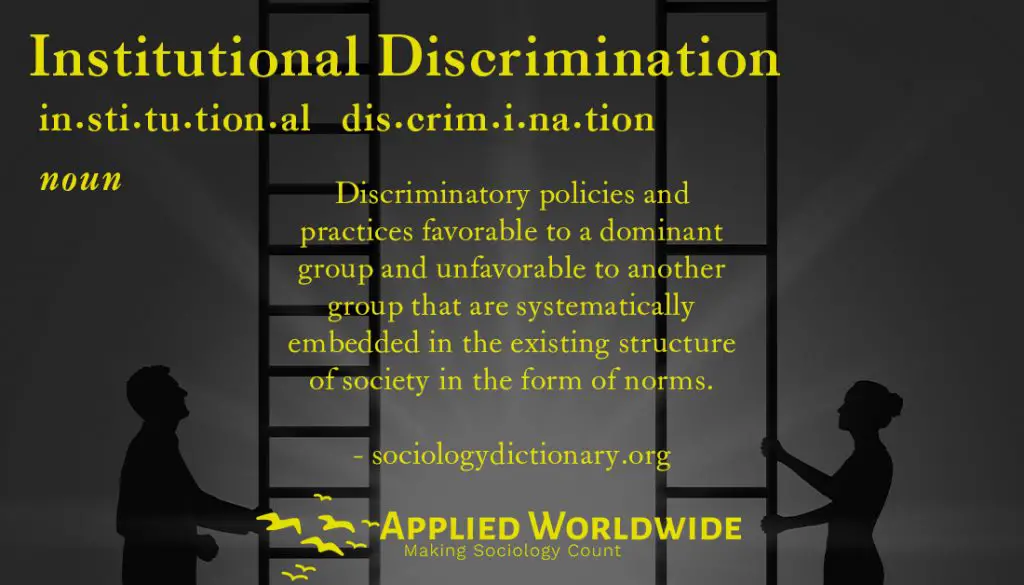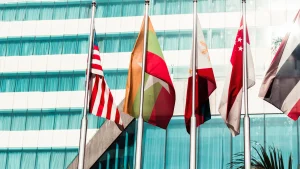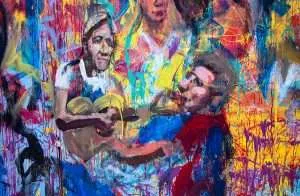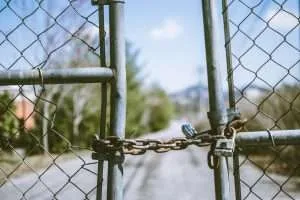Events occurring on November 20, 2020 have become an iconic representation of police brutality and structural racism in Brazil. Outside a Carrefour supermarket in the Southern capital city of Porto Allegre on the eve of Black Consciousness Day, an annual commemoration every November 20th, an Afro- Brazilian man was beaten to death by two private security guards.
In respect to the very unfortunate incident, the management of Carrefour supermarket decided it would henceforth end its contract with the contracted security firm, then fire the employees and temporarily close the sales store.
Joao Alberto Silveira Frietas’ death ignited nationwide protests and a course to re-examine the high handedness of racism in Brazil, which was a way to make mention of the aftermath caused by this inglorious outgrowth.

What exactly happened on November 20th, 2020?
Alberto Freitas was shopping with his wife before a disagreement ensued with a store employee of the aforementioned sales store. To deal with the disagreement against Alberto, the sales employee beckoned for the security guards at reach. Quickly, they came dragging Alberto out, away and into the parking lot, roughly pummeling him, until he was out of breath. He died in the heaviness of their unreserved blows and kicks.
The two security guards were white. As a result of the difference in skin color, this particular occurrence caused prolonged strike actions – including protests, international dissatisfaction and grieved reactions.
Simply because the protests have become nation-wide and Freitas’ death would henceforth be regarded by history, I, as a sociologist, chose to overview the structural framework of racism peculiar to Brazil, a sovereign state in the continent of South America.
History of Structural Racism in Brazil
Brazil has a long history of structural racism that has shaped the country’s social and economic landscape. Despite being known for its diverse culture, the country has a deep-seated problem of inequality that affects the lives of millions of Brazilians. In this blog, we will explore the roots of structural racism in Brazil and its impact on society.
The Legacy of Slavery in Brazil
The legacy of slavery is one of the primary drivers of structural racism in Brazil. The country was the largest slave importer in the world, and it took until 1888 for slavery to be abolished. This long history of slavery has created a racial hierarchy where black and mixed-race Brazilians are often relegated to the bottom of society. This inequality is particularly evident in areas such as education, employment, and health, where black and mixed-race Brazilians are often underrepresented and underserved.
Another factor contributing to structural racism in Brazil is the country’s history of colonialism. European powers colonized Brazil, which led to the exploitation of natural resources and the displacement of indigenous peoples. This exploitation has led to the marginalization of indigenous communities, who are often excluded from the political and economic systems of the country.
Structural Racism and Justice
Structural racism in Brazil is also perpetuated by the justice system. Black and mixed-race Brazilians are disproportionately affected by police brutality and are more likely to be incarcerated. This is due in part to racial profiling, where people are targeted by the police based on their race or ethnicity. There is also a lack of diversity in the justice system, with few black or mixed-race judges or lawyers.
The impact of structural racism in Brazil can be seen in the country’s high rates of poverty and inequality. Black and mixed-race Brazilians are more likely to live in poverty, have lower life expectancies, and have limited access to education and healthcare. The COVID-19 pandemic has also highlighted these inequalities, with black and mixed-race Brazilians being disproportionately affected by the virus.
Addressing Structural Racism in Brazil
To address structural racism in Brazil, it is necessary to recognize and address the root causes of the problem. This includes acknowledging the country’s history of slavery and colonialism and working to dismantle the systems that perpetuate inequality. It also requires increased diversity in positions of power and the creation of policies that promote racial equality.
One step towards addressing structural racism in Brazil is to promote affirmative action policies. These policies aim to increase the representation of black and mixed-race Brazilians in areas such as education and employment. Affirmative action policies have been successful in increasing the number of black and mixed-race students in universities, and they have the potential to make a significant impact on reducing inequality in the country.
Another important step is to invest in programs that promote economic and social mobility for black and mixed-race Brazilians. This includes increasing access to education and healthcare, creating job opportunities, and providing support to marginalized communities.
Final Thoughts on Structural Racism in Brazil
In conclusion, structural racism in Brazil is a deeply ingrained problem that affects millions of people. The legacy of slavery, colonialism, and inequality perpetuate a system of racial hierarchy that is evident in every aspect of Brazilian society. Addressing this problem requires a concerted effort to recognize the root causes of inequality and to implement policies that promote racial equality. By working to dismantle the systems of inequality, Brazil can create a more just and equitable society for all its citizens.
Police Brutality and Structural Racism Beyond Brazil
Looking beyond Brazil, structural racism is a problem in places like the United States and beyond. At the 2020 Republican National Convention hosted in the city of Cleveland, Iowa Representative Mr. Steve King debated that only whites made contributions to the emergence and maintenance of civilization without any person degrading such a racist pronouncement.
No one should be made to feel suppressed because of ‘skin color or natural placement’ because by whatever means, racism bedevils humanity, hampering social existence and putting peace into gridlock. Sociologists believe in fair treatment, dignity to life, and respect, but in order to solve racism in Brazil and beyond we must view the problem as structural.
Making Sociology a Yardstick to Ending of Police Brutality in Nigeria








